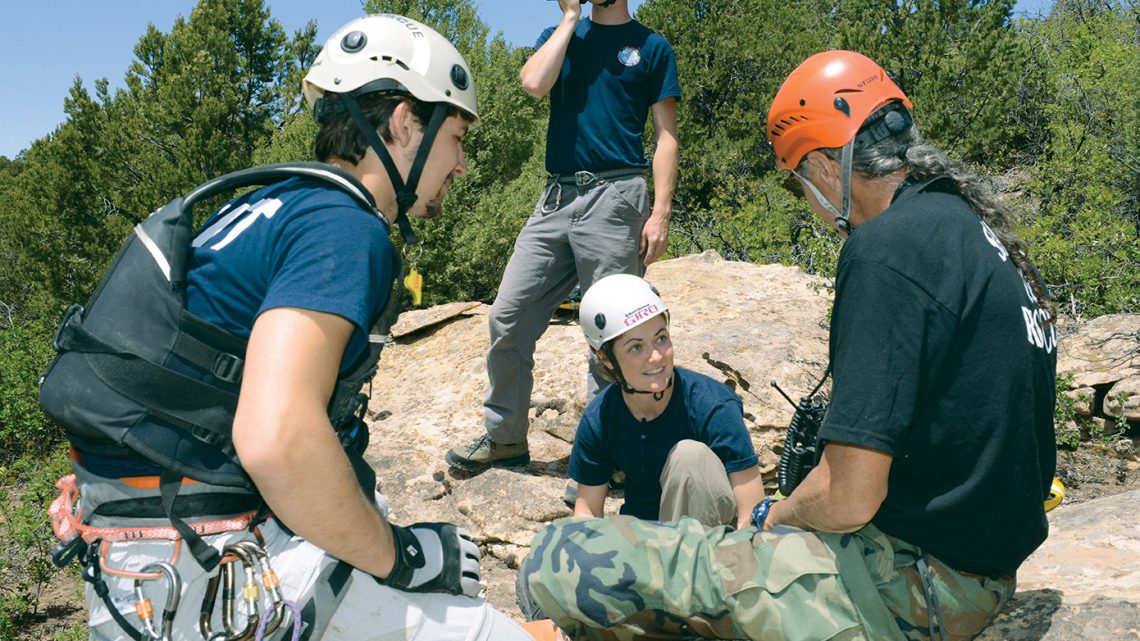For hundreds of years young men and women prepared for a career, and for life, by learning alongside experts in a chosen vocation—as farmers, craftsmen, theologians, shop keepers—virtually any trade or career. Teenagers often learned the family business from parents and older siblings, or were apprenticed to tradesmen in the community. There was little time for education as we know it, for either men or women.
Now, the world has changed. Jobs have changed. In our global society success no longer depends on simply learning a trade to support a family. Union College, along with universities and colleges around the world, strives to give students the broadest and best possible preparation for life by not only helping students prepare for careers, but showing them how to learn, to adapt and to communicate effectively—skills that will lead to success in any life path.
However, Union College has not lost sight of the effectiveness of an apprenticeship, though now terms such as “job shadowing” and “internship” are more typical. Many programs on our campus intentionally create ways for students to experience real life situations and work alongside seasoned mentors in order to learn, not just by book study, but also by doing.
Take Joe Hoffman for example. Joe is a pre-nursing major who, at the encouragement of friends and mentors, decided to enter Union’s leadership minor program. Last semester Joe took the Creative Leadership class—an exercise in group learning, studying successful leaders and participating in a citizen leadership project.
Interested in recycling, Joe thought he could encourage recycling on Union’s campus by creating a poster campaign for his project. But his professor, Dr. Linda Becker, Union’s vice president for Student Services, suggested he take his idea a bit further.
Recently Union’s garbage collection company introduced free single stream recycling to our campus—meaning nearly all recyclables can be dumped into the same container and will be hauled away for free. So the more Union recycles, the more money we save on garbage collection.
Dr. Becker and Joe decided to try to make it easier to recycle—both to save the planet and to save the college money. So they wrote a grant proposal to the Nebraska Department of Environmental Quality seeking funds to purchase recycle bins for the entire campus to make it simple for everyone to recycle instead of just throwing away paper, plastic and reusable trash.
As part of the proposal writing process, Joe conducted research and discovered that Union was throwing away 65 tons of garbage each month, about 45 tons of which could be recycled. He learned that by diverting organic materials from landfills, the methane naturally released as these materials decompose is reduced. His passion for recycling increased and in the end his work earned a $3,200 grant—enough to place attention-grabbing blue recycle bins in all our buildings.
When he started, Joe did not realize the impact this project would ultimately have on our campus. Joe said he felt inspired by the teamwork as he volunteered his time to distribute the bins. He learned one of the most important lessons of leadership. “I couldn’t do this without everyone else at Union,” he said. “This is not my project—it’s Union’s project.”
I’m so impressed with Union College professors as every day I see them encouraging students to go beyond getting a grade by taking an active role in their own education. In the next few pages, we share a sampling of stories of students who have found varieties of ways to make their education more meaningful and practical.
Thank you for your continued support of the great students we have at Union College. Please keep each one in your prayers as they prepare, not only for a career, but for a life that makes a difference.
[hr]
John Wagner is president of Union College.










